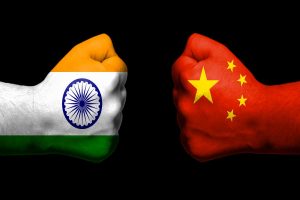Prime Minister Narendra Modi and Bangladesh PM Sheikh Hasina on Saturday inaugurated the India-Bangladesh Friendship Pipeline, a cross-border energy pipeline, via video conferencing.
While addressing the event, PM Modi said, “I am confident that this pipeline will further speed up the development of Bangladesh and be an excellent example of the increasing connectivity between both countries.”
This is the first cross-border energy pipeline between India and Bangladesh, built at an estimated cost of Rs 377 crore, of which the Bangladesh portion of the pipeline was built at a cost of approx. Rs 285 crore, which has been borne by the Govt of India under grant assistance, read Prime Minister’s Office press release.
“In the last few years, under the able leadership of PM Sheikh Hasina, Bangladesh has made remarkable progress. Every Indian is proud of that & we’re delighted that we’ve been able to contribute to this development journey of Bangladesh,” said PM Modi at the inauguration of the India-Bangladesh Friendship Pipeline.
PM Modi further said that the India-Bangladesh friendship pipeline was initiated in September 2018, adding, “with the help of this pipeline Northern West Bengal districts will be provided 1 million metric tonnes of high-speed diesel. This will reduce the cost and will also reduce the carbon footprint of the supply.”
Speaking on the progress of connectivity between the two nations, he said, “I remember many years back Prime Minister Sheikh Hasina had talked about her vision of restoring the pre-1965 rail connectivity. And since then the two countries together have made a lot of progress.”
PM Modi also highlighted the fact this rail connectivity between the two nations helped in sending Covid vaccines to Bangladesh.
“As a result of this, during the Covid epidemic, we were able to send oxygen etc. to Bangladesh through the rail network. I heartily congratulate Prime Minister Sheikh Hasina ji for her far-sighted vision,” said PM Modi.
It is pertinent to note that the inauguration of the India-Bangladesh Friendship Pipeline is taking place a day after the birth anniversary of Bangabandhu Sheikh Mujibur Rahman.
“What an auspicious coincidence that today’s inauguration is taking place a day after the birth anniversary of Bangabandhu Sheikh Mujibur Rahman! Bangabandhu’s ‘Shonar Bangla’ vision included the harmonious development and prosperity of the entire region. This joint project is a perfect example of their vision,” said PM Modi.
The Pipeline has the capacity to transport 1 Million Metric Ton Per Annum (MMTPA) of High-Speed Diesel (HSD). It will supply High-Speed Diesel initially to seven districts in northern Bangladesh.
The operation of India- Bangladesh Friendship Pipeline will put in place a sustainable, reliable, cost-effective and environment-friendly mode of transporting HSD from India to Bangladesh and will further enhance cooperation in energy security between the two countries, added the release.
The India-Bangladesh Friendship Pipeline will carry diesel from Assam-based Numaligarh Refinery Ltd’s (NRL) marketing terminal at Siliguri in West Bengal to the Parbatipur depot of Bangladesh Petroleum Corporation (BPC).
The project is jointly implemented by the Numaligarh Refinery Limited of India and Meghna Petroleum Limited of Bangladesh.
India-Bangladesh Friendship Pipeline would help provide a stable supply of diesel in all 16 northern districts under Rangpur and Rajshahi in Bangladesh. It will ensure fast-paced delivery of fuel at a minimum cost. Currently, imported diesel are supplied to these regions via wagons and trawlers from the Chattogram and Mongla ports.
It costs around USD 8 for each barrel of fuel to be transported from the port city. The pipeline would reduce the cost to around USD 5 per barrel. It will also reduce the transportation time to just one hour as opposed to the current situation of taking several days to transport diesel via wagons and trawlers.












